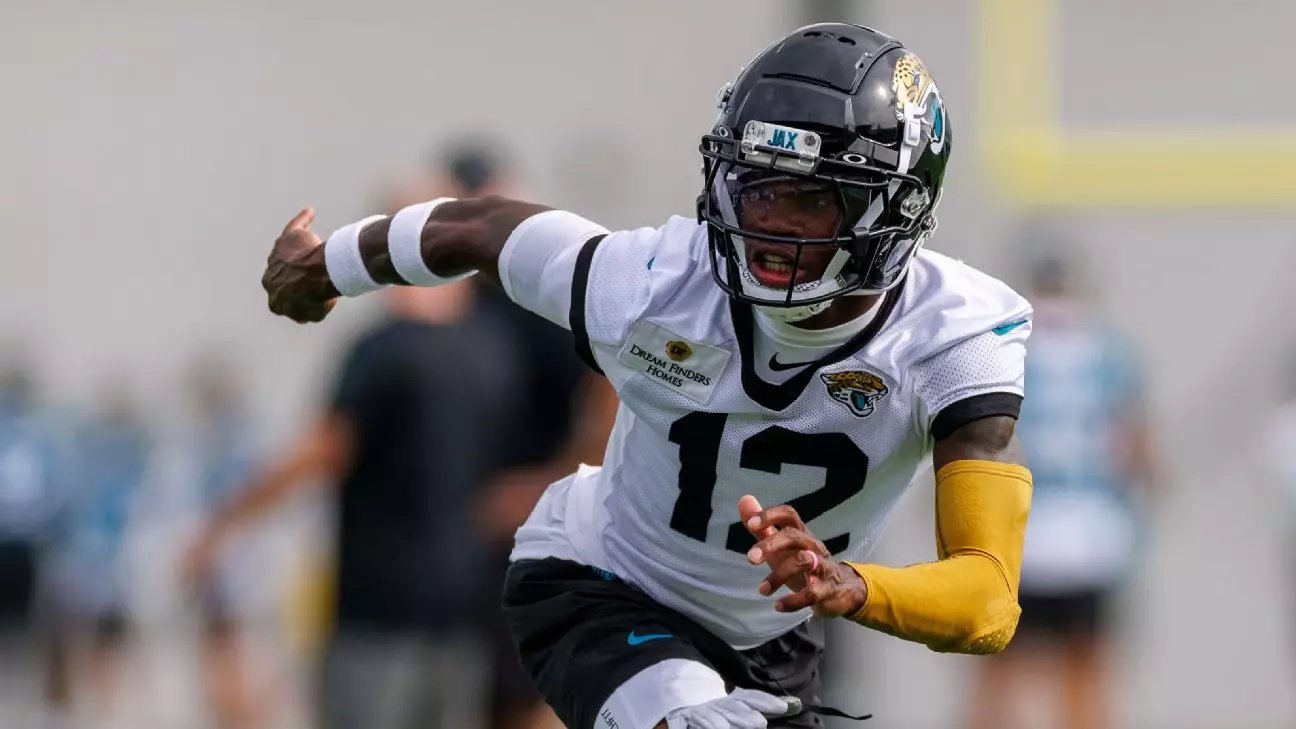In an era where specialization is king, Travis Hunter’s journey into the NFL spotlight challenges conventional wisdom with its audacious goal: to revive the era of the two-way player. The Jacksonville Jaguars have embraced a revolutionary strategy, reintroducing a concept believed long gone since Chuck Bednarik’s days. This bold experiment signals a willingness within the league to push boundaries and question long-standing paradigms about the limits of player roles. Yet, beneath this veneer of innovation lies a complex web of risks and questions about whether such a pursuit truly enhances team dynamics or diverts focus from core competencies.
Hunter’s deliberate training regimen—dedicating days to offense and others to defense—reflects an understanding of the colossal cognitive demand involved. It is not merely about physical readiness but mastering two distinct playbooks, each with its own language and nuances. This challenge exposes a fundamental flaw in the idea: the human mind, even at the athletic elite level, has finite capacity. To assign a single player multiple roles at the highest level may not be an avant-garde move but a distraction that could compromise overall team performance. Is it realistic to expect a rookie to juggle these responsibilities without sacrificing development in one or both areas?
The Potential Pitfalls of Dual-Role Specialization
While the allure of a versatile player holds undeniable appeal—offering strategic flexibility and maybe even creating mismatch nightmares—the risks are profound. Overloading a talented player like Hunter risks burnout, both mentally and physically. Coaches may see promise in pushing young athletes to their limits, but this approach could backfire, diminishing their long-term potential. History suggests that players forced into multi-dimensional roles often struggle to excel in either.
Furthermore, this strategy risks diverting attention from building specialized skills essential for NFL success. The league’s game is increasingly sophisticated, demanding mastery over narrow responsibilities. Broadening a player’s scope could lead to surface-level competency rather than the nuanced expertise needed to dominate against seasoned opponents. There’s an inherent danger that the focus on versatility becomes a crutch to mask coaching limitations, rather than a genuine effort to elevate player performance.
The Implications on Team Strategy and Development
From a team-building perspective, crafting a roster around a potential two-way star raises questions about how resources are allocated. Features such as this can seem like a tactical gamble—a high-risk, high-reward scenario rooted more in novelty than sustainable advantage. Coaches like Liam Coen acknowledge the logistical maze of managing a dual-role player, emphasizing patience and measured integration. But is this patience justified if Hunter’s development stalls or his contributions lack consistency?
Additionally, this experiment could set a concerning precedent. If teams start prioritizing multi-role players at the expense of specialized talents, the league might witness a decline in overall playing standards. The NFL is a league of specialists; embracing generalists could undermine the very fabric of the sport. A more critical view suggests that while innovation is essential, it should not come at the cost of losing focus on cultivating elite expertise—a principle that has served the league well for decades.
Is the Allure Worth the Crossroads?
The allure of having a player who can excel on both sides of the ball speaks to a broader desire for ingenuity and adaptability. In an increasingly complex NFL, teams seek edges wherever they can find them. Yet, this pursuit must be tempered with realism. Can a rookie, no matter how talented, truly embody the demands of being a true two-way player? The native challenge lies in balancing immediate competitive needs with long-term player health and development.
What remains clear is that this bold experiment demands critical scrutiny. Coaches and fans alike must question whether endorsing such unconventional paths optimizes prospects or sidetracks core developmental priorities. The NFL’s evolution should favor strategic ingenuity, but not at the expense of foundational principles that have long defined the sport’s integrity. If the league continues to chase novelty without weighing the profound implications, it risks sacrificing not only individual careers but the very essence of high-performance football.



Leave a Reply